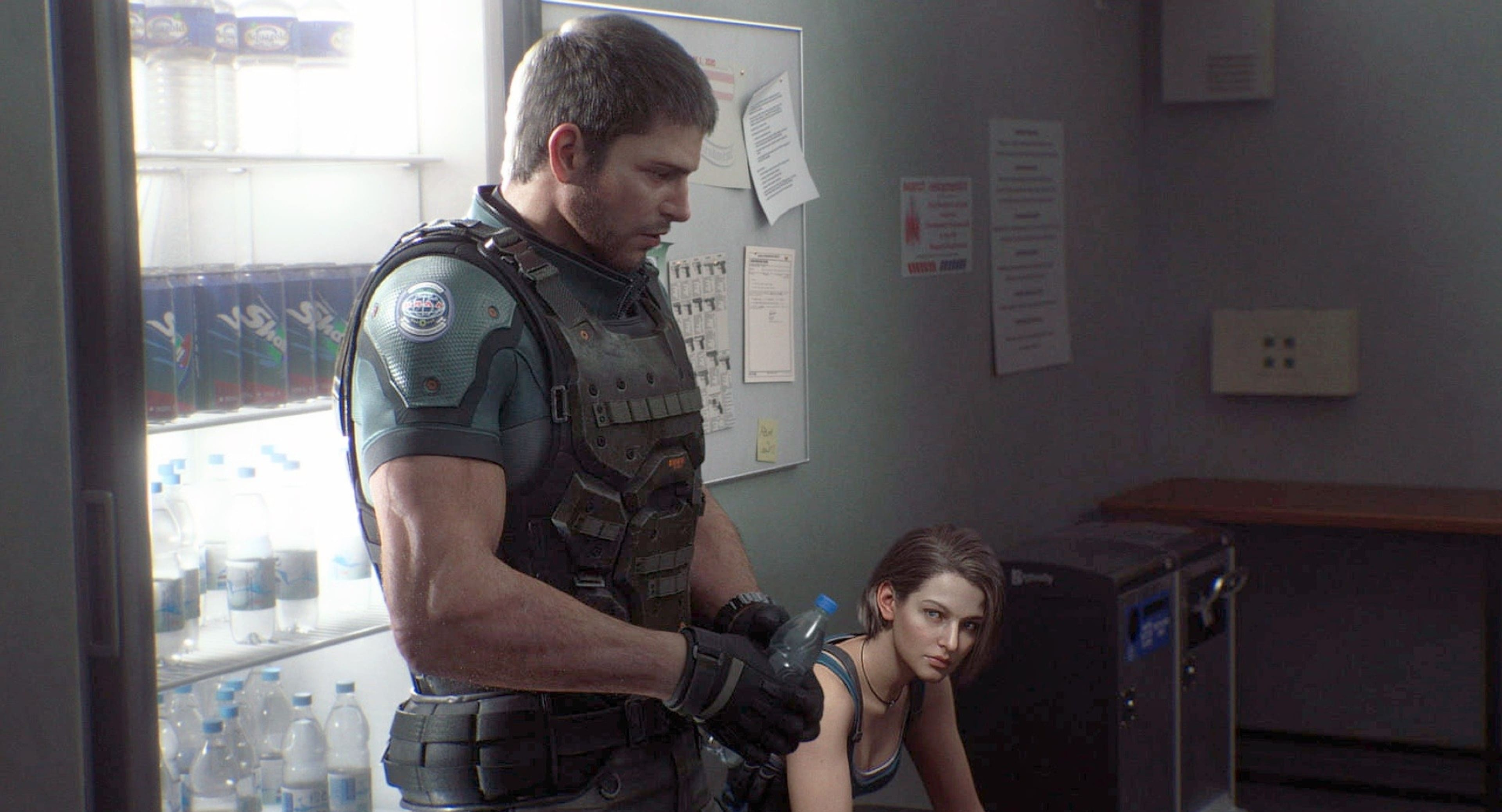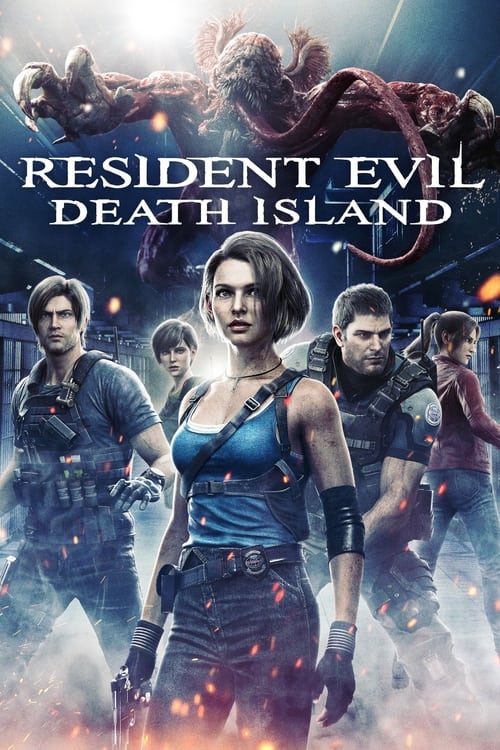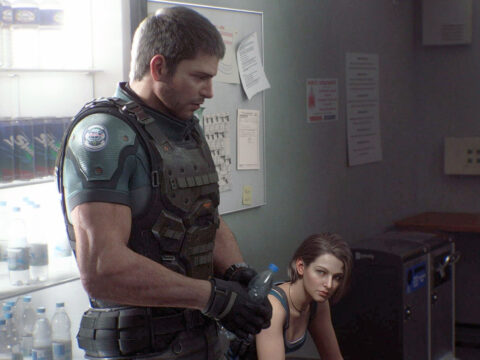In San Francisco, Jill Valentine is dealing with a zombie outbreak and a new T-Virus, Leon Kennedy is on the trail of a kidnapped DARPA scientist, and Claire Redfield is investigating a monstrous fish that is killing whales in the bay. Joined by Chris Redfield and Rebecca Chambers, they discover the trail of clues from their separate cases all converge on the same location, Alcatraz Island, where a new evil has taken residence and awaits their arrival.
Resident Evil: Death Island – Film Review
Published July 29, 2023

Set in San Francisco, the movie follows the journeys of iconic Resident Evil characters Jill Valentine (played by Nicole Tompkins), Leon Kennedy (portrayed by Matthew Mercer), and Claire Redfield (embodied by Stephanie Panisello) as they find themselves embroiled in yet another deadly T-Virus outbreak. As the story unfolds, it becomes apparent that they are pursuing separate cases that all lead to a mysterious and dangerous location: Alcatraz Island. With the addition of familiar faces like Chris Redfield (Kevin Dorman) and Rebecca Chambers (Erin Cahill), the stage is set for an action-packed and suspenseful adventure.
One of the strengths of Resident Evil: Death Island lies in the performances of its cast. Nicole Tompkins, as Jill Valentine, captures the essence of her character with a balance of determination and vulnerability. Matthew Mercer’s portrayal of Leon Kennedy is equally compelling, demonstrating the character’s signature stoicism and resourcefulness. Stephanie Panisello brings depth to Claire Redfield, making her a relatable and formidable protagonist. The chemistry among the main cast members is evident, and their interactions add depth to the overall experience.
Furthermore, the film’s depiction of the T-Virus outbreak is well-executed, with impressive practical effects and convincing makeup creating gruesome and terrifying zombies. The dark and eerie atmosphere of the infected city helps to maintain a sense of dread throughout the movie, giving fans the familiar horror elements they have come to expect from the franchise.
However, despite these positive aspects, the film falters in several crucial areas. One of the main issues is the disjointed narrative structure. Jumping between the three protagonists’ storylines can be confusing and disrupt the flow of the film. While convergence is a key theme in the Resident Evil series, Death Island struggles to smoothly intertwine the separate arcs, leaving the audience feeling disconnected from the overall plot.
Additionally, some plot points feel underdeveloped and lack the depth required to keep the audience fully engaged. Claire Redfield’s investigation into the monstrous fish killing whales in the bay, for instance, seems like a promising and unique angle, but it is hastily introduced and not given the attention it deserves. As a result, it feels like a missed opportunity to add more complexity and intrigue to the story.
Furthermore, the introduction of a new evil on Alcatraz Island is intriguing, but the motivations and background of this antagonist are not adequately explored. This lack of context makes it challenging to invest emotionally in the conflict between the main characters and the villain.
In terms of action sequences, Resident Evil: Death Island delivers on adrenaline-pumping moments. However, some of the action scenes suffer from shaky camera work and quick cuts, making it difficult to follow the action coherently. A more composed and steady approach to filming action scenes would have allowed the audience to fully appreciate the skills of the characters and the intensity of their struggles.
Moreover, despite having a talented cast, the dialogue and character interactions sometimes feel flat and clichéd. While the actors do their best to infuse their roles with personality, the script does not always provide them with the necessary depth or complexity. As a result, the emotional impact of certain scenes is diminished, and character motivations may come across as superficial.
In terms of technical aspects, the film generally maintains a high production value. The special effects and set designs are impressive, adding to the overall atmosphere of the movie. However, the overreliance on CGI during certain action sequences occasionally detracts from the practicality and realism that made earlier installments in the franchise stand out.
Resident Evil: Death Island showcases the potential for an exciting addition to the beloved franchise, with its talented cast and promise of horror and action. However, it ultimately fails to deliver a cohesive and deeply engaging narrative. The film suffers from a disjointed structure and underdeveloped plot points, preventing it from reaching the heights of its predecessors. While the movie does offer some thrilling moments and impressive visuals, it falls short of being a standout entry in the Resident Evil series. Fans of the franchise may find moments of enjoyment, but overall, Resident Evil: Death Island struggles to live up to its predecessors’ legacy.

